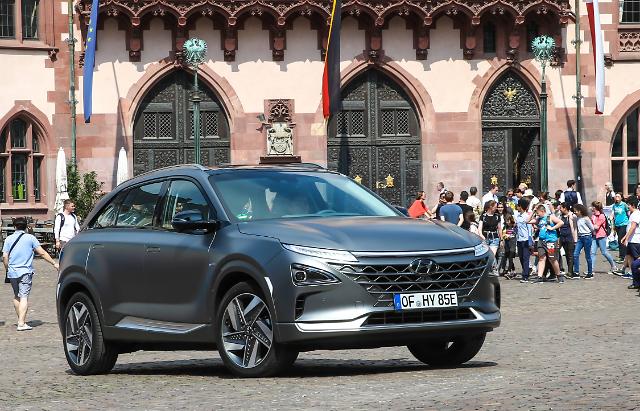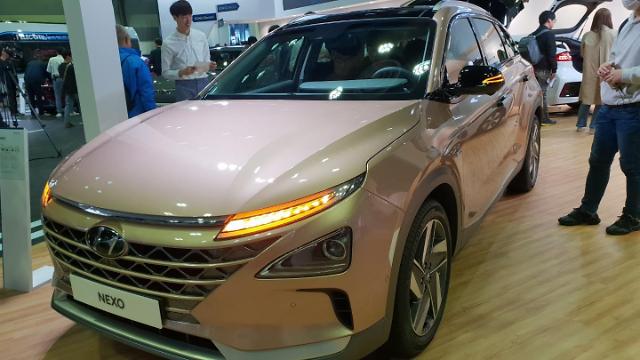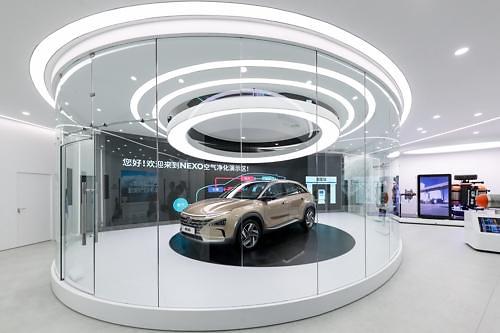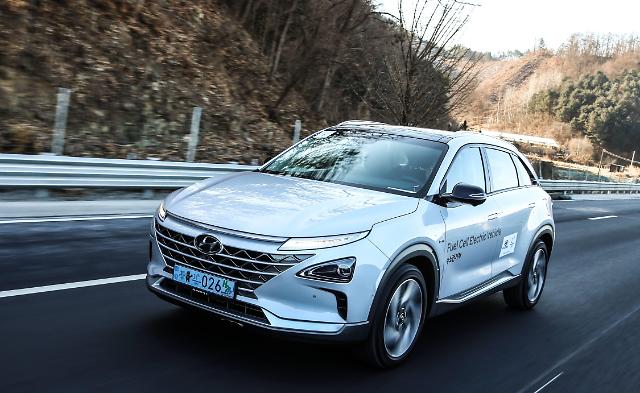[Courtesy of Hyundai Motor]
SEOUL -- Hyundai Motor, a frontrunner in the development of hydrogen fuel cell electric vehicles (FCEVs), will sign a deal with two French companies this week to promote the sale of emission-free cars and the establishment of charging stations in the European country.
Hyundai said it would sign a memorandum of understanding in Paris Tuesday with Engie, a French multinational electric utility company, and Air Liquide, a multinational company which supplies industrial gases and services to various industries. Based on the deal, Hyundai aims to ship some 5,000 FCEVs to France by 2025.
Along with the establishment of charging stations for FCEVs, the deal would call for the development of a viable business model for the investment and operation of hydrogen fuel infrastructure in France. Hyundai said that Air Liquide is expected to participate in a special purpose company (SPC) which will be established in South Korea at the end of this year to build charging stations for FCEVs.
South Korean President Moon Jae-in, who is on a tour of five European countries, tested Hyundai Motor's NEXO", a sport utility vehicle (SUV) type FCEV, during his visit to France on Sunday and checked a charging station set up by Air Liquide in Paris. At the site, Hyundai Motor President Chung Jin-haeng called for government help to quickly establish a network of charging stations.
"Although charging stations are located in downtown Paris, they are installed mainly in suburban areas in South Korea due to misunderstandings about hydrogen fuel and safety standards," Chung said, urging South Korea to benchmark the case of France.
Hyundai has touted hydrogen fuel as an alternative to solve global problems such as pollution and resource depletion. Because FCEVs emit no greenhouse gas, the eco-friendly cars are seen as a next-generation vehicle, but they are still not popular in South Korea mainly due to the lack of charging stations.





